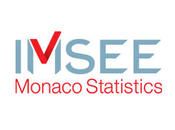- Homepage
- The Economy
- News
- GDP 2021: positive post-COVID performance
GDP 2021: positive post-COVID performance
The Principality’s gross domestic product (GDP) figures for 2021, revealed today in the annual report produced by Monaco Statistics, are clear: Monaco’s economy has rediscovered its vitality and the page appears to have been turned on the economic crisis prompted by the COVID pandemic.
Last year, Monaco’s GDP reached EUR 7.27 billion, compared with EUR 6.60 billion in 2019 and EUR 5.90 billion in 2020. After a sharp fall of 13.0% in 2020, GDP rose by 21.6% in 2021 and, most significantly, was up 5.8% compared with 2019 (in real terms, adjusted for inflation).
In other words, the Principality’s economy has returned to a path of growth, with an average annual growth rate of 4.4% over the decade.
However, as is the case every year, there were substantial differences in economic performance across the different sectors. While the vast majority of major economic sectors saw an increase in GDP, four sectors have yet to return to pre-pandemic levels, including accommodation and food service activities, the sector hardest hit by the health crisis, which nonetheless experienced the strongest relative growth compared to 2020 (+146%).
The three key economic sectors in the Principality (scientific and technical activities, administrative and support services[1] ; financial and insurance activities; and wholesale trade) account for nearly half (47.3%) of the wealth produced.
It is also worth noting that per capita GDP reached a record level of EUR 81,710, a 17.5% increase in real terms compared with 2020, and a 3.9% increase compared with 2019.
Finally, GDP per employee, an indicator of economic productivity, also reached new heights at EUR 125,121, up 17.0% in real terms compared with 2020 and 5.4% compared with 2019.
The GDP calculation has highlighted some strong trends:
- Gross operating surplus – that is, the productive income earned by companies, is now the leading contributor to GDP in Monaco (44.1%, excluding subsidies), having narrowly overtaken employee wages for the first time since 2007.
- Employee remuneration, which represents the redistribution of the annually created wealth in the form of salaries and social security contributions, increased by 10.1% compared with 2020 and by 4.0% compared with 2019, meaning that it experienced a proportionally larger rise than the increase in the number of active employees.
- The amount of taxes paid on products rose by 13.8% in 2021, due primarily to VAT growth, contributing 13.8% of the wealth created, excluding subsidies.
- Subsidies paid out by the Prince’s Government to support the economy during the health crisis in 2020 had doubled. They fell by half in 2021 (-44.6%) but remain at higher levels than in 2019.
All of the figures set out here, as well as the comparative tables, are available from the imsee.mc website.
_______________________
[1] This sector includes all specialist professional, scientific and technical activities requiring a higher level of education and supplying users with specialist knowledge and skills, as well as the full range of general business support activities, such as accountancy specialists, notaries, architects, travel agencies, temping agencies, etc. (NAF categories 69 to 82).
Autres actualités du thème

17th meeting of the Scientific Council for Statistics and Economic Studies









